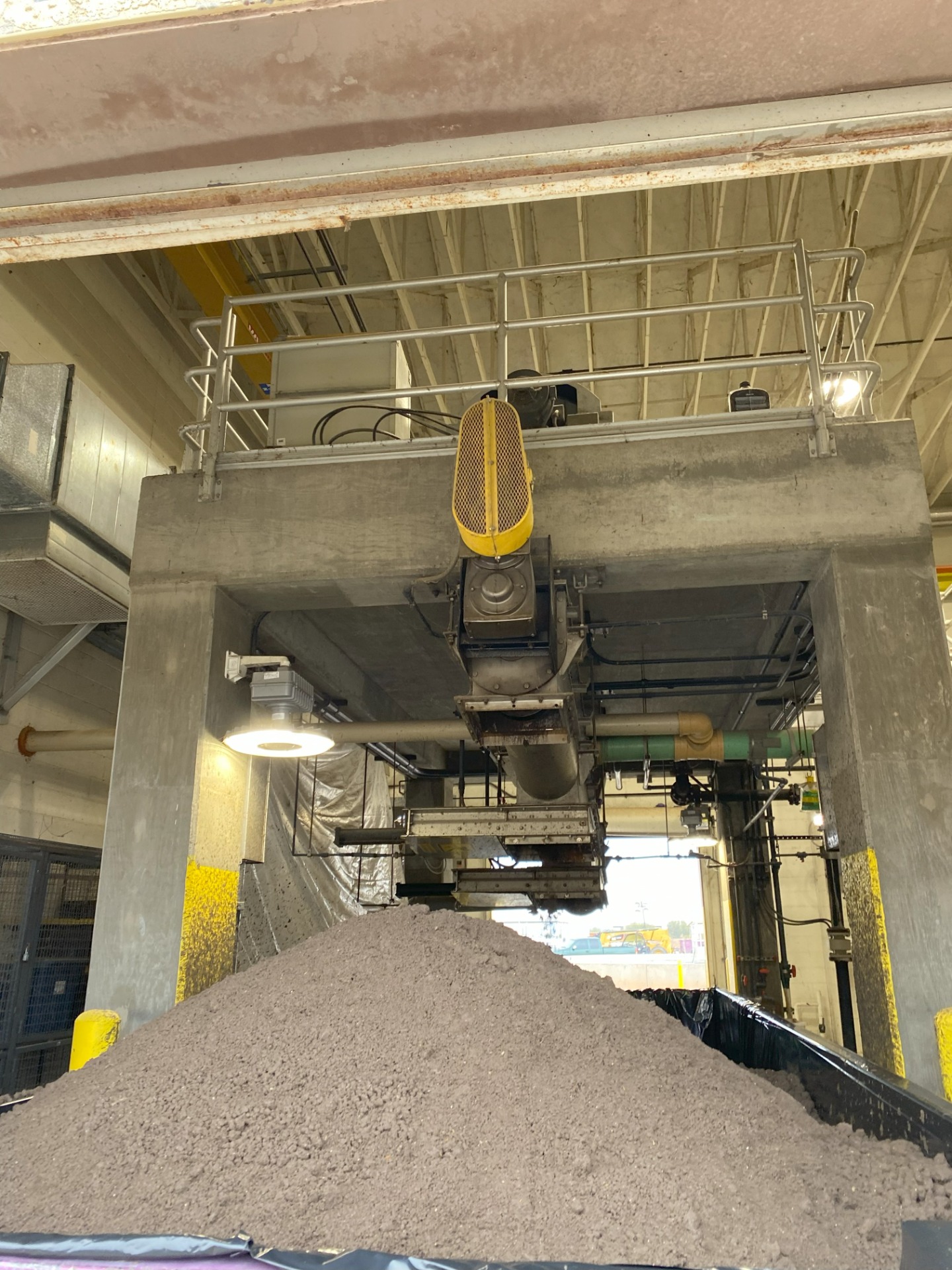Image by: Andrew Shipley
The purpose of solids handling is to properly collect, dewater, treat, and dispose of the solids coming into the facility.
Current solids handling equipment includes dewatering centrifuges. A coagulating polymer is added to the influent solids. This polymer helps the solids clump together for easy drying in solar drying beds and transportation to a landfill for final disposal.

Image by: WCWW
Two different alternatives were evaluated for solids handling. The first being no change to the existing dewatering centrifuges and solar drying beds. The second being retrofitting antiquated aerobic digesters into anerobic digesters to produce biomethane.
Each alternative was scored 1-5 (1 being the worst and 5 being the best) based on how well they met each criterion. A summary of how each criteria was scored can be found in the following table.

The five criteria used to score alternatives for solids handling were capital costs, operation and maintenance costs, ability to meet permits, minimizing construction time, and environmental and societal impacts. Operation and maintenance costs were weighted highest since an alternative would need to improve costs in the long term to be worth replacing currently adequate systems.

It was decided to retrofit the aerobic digesters into anerobic digesters. After analysis it was calculated that 31% of sludge being received by the facility could be digested by the volume provided by retrofitting the digesters into anerobic digesters. To offset costs, biomethane produced will be sold to a third party. Sludge treated by the digesters and dewatering centrifuges will be conveyed to the on-site solar drying beds.
